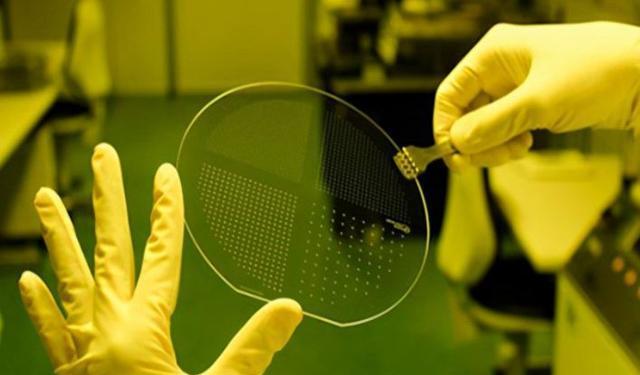
Text/Ball Review/Zi Yang Proofreader/ZhiQiu
In 2021, the global lack of cores will become more and more intense, and the manufacturing industry in various countries will be seriously affected, further illustrating the importance of chips.
In fact, in addition to chips, sensors as the frontier technology of modern technology, its importance in the modern information technology industry, is not lost to chips, and even the industry generally believes that the stronger the strength of sensor technology, the stronger the automation industry.
Sensor application range
So, what exactly are sensors? Why is it as important as a chip? In a literal sense, a sensor is a detection device that can detect any information in the external environment, and then transform the perceived information into an electrical signal according to the law, so as to meet the requirements of information transmission, storage, perception and so on.
Simply put, sensors are equivalent to human senses, making otherwise rigid objects more intelligent.
Since we understand sensors, their application scope is better judged, such as smart cars, smart phones, intelligent robots, cameras and the Internet of Things, etc., all need to use a large number of sensors.
Thanks to the wide range of sensor applications, the variety is even more numerous, at present, the global sensor products have exceeded more than 20,000 kinds, more than the types of chips.
It is worth mentioning that the application of sensor products has been extended to the field of national defense, such as military night vision goggles, fighter jets, etc., and the importance is not exaggerated at all compared to chips.
80% rely on overseas imports
China's current sensor product categories are about 6,000 kinds, in contrast, there are not many types, and, from the perspective of industry product structure, the proportion of old products accounts for more than 60%, digital, intelligent and other high-end sensors are lacking, mainly relying on overseas imports.
Public information shows that China's imports of high-end sensors account for 80%, mainly purchased from foreign companies such as Emerson, Bosch, honeywell, etc., and the self-sufficiency rate of related sensor products is seriously insufficient.
There are many reasons for this situation in China's sensor industry, on the one hand, China's sensor market started late, and there are technical shortcomings in the design, manufacture, packaging and testing of high-end sensors.
In contrast, new technologies, new products and new processes of foreign sensors continue to emerge, and most high-end products are constantly improving and upgrading, which also leads to the main performance indicators of domestic sensor products and the existence of one or two orders of magnitude abroad.
Therefore, in major engineering fields such as chemical industry, power stations, and environmental protection, many high-performance sensors need to rely heavily on imports.
On the other hand, talent resources are scarce and industrial development is insufficient. You know, the characteristics of the sensor industry are that it is technology-intensive and requires many high-end talents.
At present, there is a relative shortage of talents who can adapt to the development of today's sensor technology, which will lead to slow iteration of domestic sensor technology, insufficient industrial development potential, and insufficient foundation to impact the high-end sensor market.
Finally, the research of sensor technology takes a long time, in general, the research and development of a sensor takes 6 to 8 years to mature, which is the time required in the case of a certain technical reserve.
For Chinese enterprises such as weak technical reserves and weak capital reserves, it is difficult to withstand such a long research and development cycle, and even failures will occur during research and development.
When will domestic sensors break through
In the author's opinion, the situation that China's related industries rely on imported sensors will not last long, because domestic sensor companies have been on this road for many years, even dating back to 1980, during which a large number of sensor companies were born, breaking the monopoly of related sensor technology one after another.
Taking Hanwei Technology, which specializes in gas sensors, as an example, the company has successfully established an independent and controllable industrial chain, and has achieved a comprehensive breakthrough in catalytic combustion, electrochemistry, infrared, laser and other sensitive components and intelligent sensors.
According to public information, the gas sensor independently developed by Hanwei Technology occupies 70% of the share in the domestic market, successfully breaking the monopoly of foreign companies in the field of gas sensors and making up for the gap in the field of domestic sensor segmentation.
In addition to Hanwei Technology, Goertek Acoustics has entered the top three in terms of acoustic sensors market share; Ruichuang Micro-Nano has independent intellectual property rights in the design and manufacture of infrared thermal imaging chips.
From the above point of view, China has shown a multi-point flowering situation in the sensor market.
Write to the end
However, China's sensor industry wants to completely get rid of the monopoly of foreign companies, need to further increase investment in technology research and development, establish core technical barriers, at the same time, in response to the shortage of related talents, domestic sensor companies should strengthen cooperation with universities at home and abroad to absorb more high-end talents into the enterprise.
In addition, in the design, manufacturing, packaging and testing of the industrial chain, as well as materials, it is necessary to create a localization cluster.
The author believes that it is only a matter of time before China breaks the monopoly of sensors.